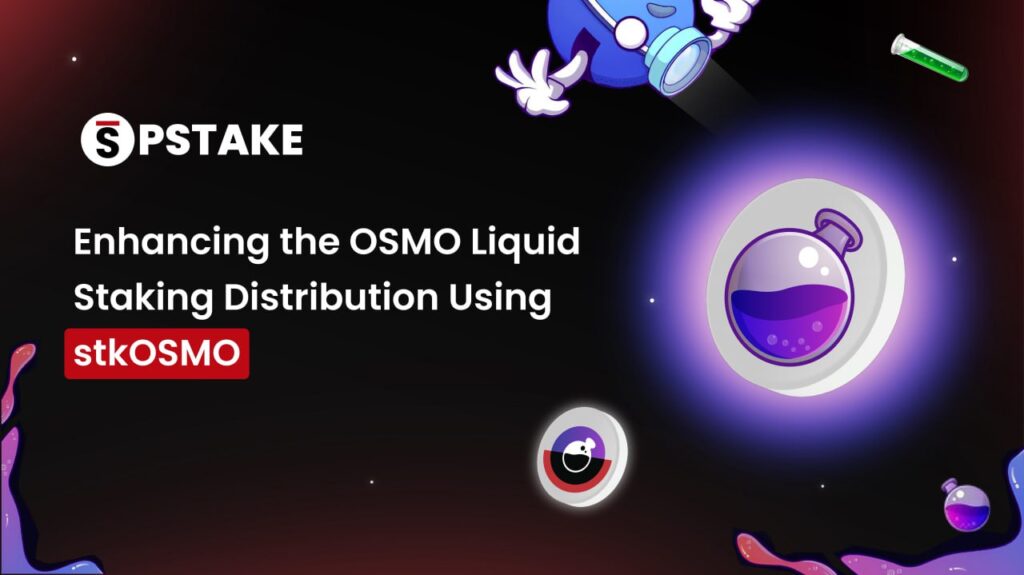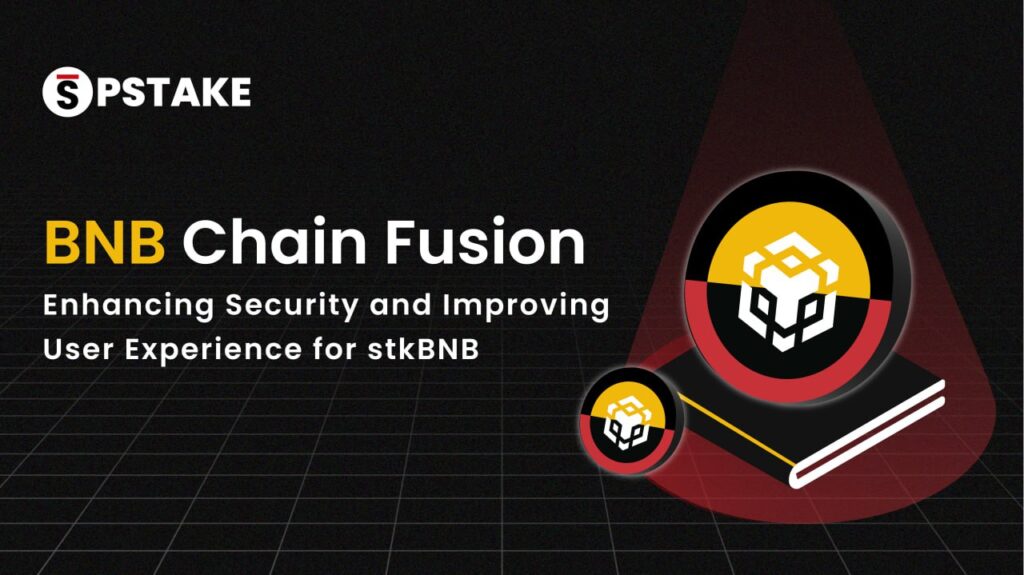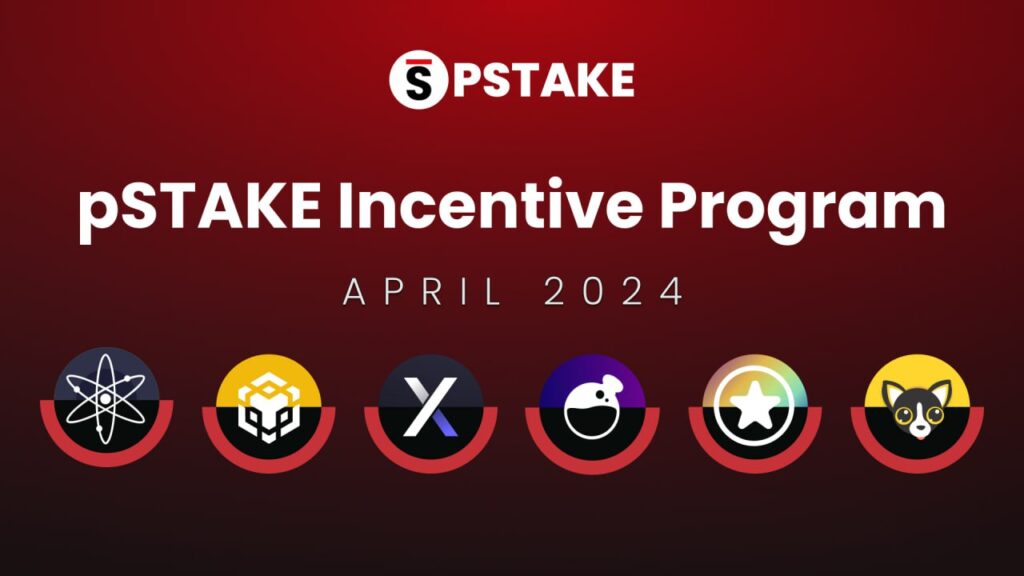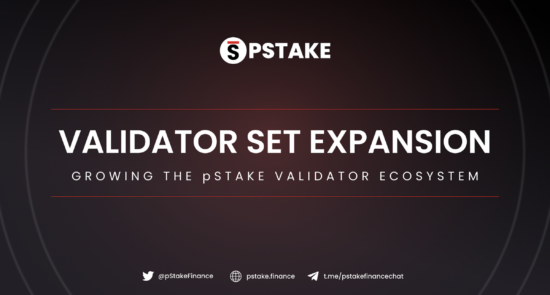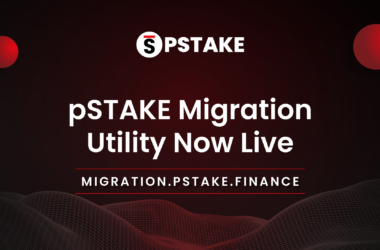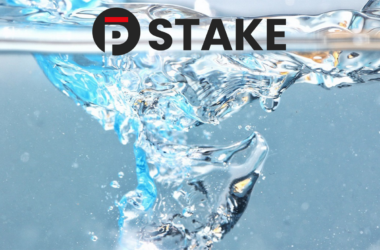After launching with a set of six initial safelisted validators in July 2021, pSTAKE is now expanding its validator ecosystem. This will assist in furthering the decentralisation of the underlying supported networks.
Building on Strong Foundations: Current Validator Set
pSTAKE’s architecture mirrors the underlying PoS protocols as closely as possible, hence pSTAKE has partnered with some of the best-performing and most-reputed validators securing the underlying supported networks – currently Cosmos (ATOM) and Persistence (XPRT).
The validators securing the delegations received through pSTAKE are chosen from the active validators on the underlying chains. These validators receive delegations through independent instances of pBridge for both supported networks.
The current pSTAKE validator set includes:
These validators were chosen with the following priorities in mind:
User security
- pSTAKE required a set of experienced validators to bootstrap the product and ensure safety of the funds deposited by our users onto the platform.
- Being the first liquid staking protocol issuing cross-chain representative assets through pBridge, we needed to ensure that the validators have the capability to support our sophisticated infrastructural requirements.
Multi-chain support
- pSTAKE has been built with a multi-chain vision, and we required our first set of validator partners to be experienced in securing multiple chains.
- Our six validator partners actively validate on 40+ networks with ~$9.5 billion of assets currently under delegation, and have actively engaged with the team to help us implement best practises and deliver superior multi-chain user experience.
Protocol Security
- These validators are some of the best-performing validators with highly decentralised infrastructures, and have established a trusted user base on the networks that pSTAKE currently supports and plans to support in the future.
Rationale for Expanding the Validator Set
Bolstering the security of the supported Proof-of-Stake networks has always been a priority for pSTAKE. While the current validators have successfully helped us to bootstrap the application, we realise the challenges faced by the Proof-of-Stake networks with respect to maintaining decentralisation of voting power.
A primary factor is the lack of awareness regarding the broad spectrum of validator options, resulting in a concentration of assets being staked with a minority of prominent validators on respective PoS networks. Taking Cosmos as an example, over 27% of the total $ATOM staked on the network is delegated to the top 5 validators. This hinders the decentralisation goals of PoS networks.
pSTAKE addresses this issue by automatically distributing the received delegations equally amongst all its validator partners, without the user having to decide which validator/s to delegate to. Moreover, we will consistently keep increasing the validator set for individual networks, while making sure that all validators onboarded meet the minimum performance requirements. Hence, the delegations will be distributed amongst an increasing number of validators, furthering the decentralisation on the underlying networks.
Next Steps: Integrating Community Governance
Over the next couple of weeks, the pSTAKE team will be actively looking to add more validators to the existing validator sets (for both stkATOM and stkXPRT) and will be using the pSTAKE forum to transparently discuss the onboarding process. We invite you to join the discussion.
In the future, with the launch of pSTAKE’s governance token ($PSTAKE), the validator onboarding/removal process will be made governance-driven, meaning users/validators will be able to submit proposals to add/remove a validator to/from the existing set of validators for a particular supported network.
We will also introduce a scoring mechanism to score the validators’ performance based on parameters including uptime, latency, data center decentralisation, commission rate, existing delegation, etc. This scoring mechanism will complement the governance outcomes to determine the final decision regarding the addition/removal of validators.
Moreover, the scoring mechanism can also be used to rank the active validator partners and adjust the delegation distribution strategy from the current equal distribution strategy.
About pSTAKE
pSTAKE is a liquid staking protocol that unlocks liquidity for your staked assets. With pSTAKE, you can securely stake your Proof-of-Stake (PoS) assets, participate in protocol improvements and security to earn staking rewards, and receive staked underlying representative tokens (stkASSETs) which can be used to explore additional yield opportunities across DeFi.
At present, pSTAKE supports Binance Chain (BNB), Cosmos (ATOM), Persistence (XPRT), and Ethereum (ETH) networks’ native tokens, with a view to support more chains and assets in the future (SOL, and AVAX).
Developed by Persistence
Persistence is a Tendermint-based, specialised Layer-1 network powering an ecosystem of DeFi applications focused on unlocking the liquidity of staked assets. Persistence facilitates the issuance and deployment of liquid-staked stkASSETs, allowing users to earn staking rewards while participating in DeFi primitives, such as lending/borrowing and liquidity provisioning on DEXs.
Persistence aims to offer a seamless staking and DeFi experience for PoS (Proof-of-Stake) users and enable developers to build innovative applications around stkASSETs.
Join Our Movement
Twitter | LinkedIn | Telegram | YouTube | Reddit | [email protected]


